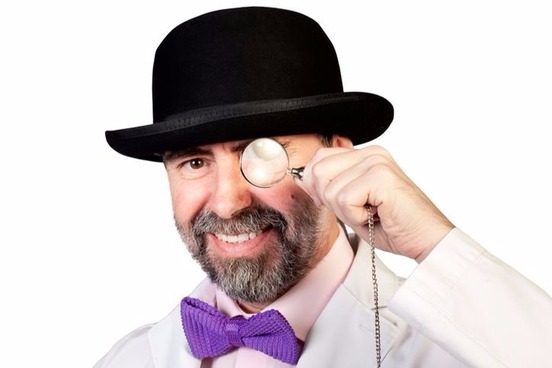
Mumchance
Definition: a silent stupid person
Mumchance has a rich palette of uses to choose from. In addition to the noun sense above (and it can also refer to an old dice game) it may function as an adjective (“silent”), adverb (“silently”), and, most usefully, as a verb (“to be silent out of caution or stupidity”).
To all such, allow me to say, shame on you! for a pack of mumchances. What on earth are you good for? Think you that magazine writing—or stage-coach conversation is to be made up of axioms and apothegms, of essays and homilies? No.
— The Raleigh Register (Raleigh, NC), 12 Mar. 1853

Sloven
Definition: one habitually negligent of neatness or cleanliness especially in personal appearance
Yes, we know that the word slob carries much of the same semantic content as sloven, and has the additional benefit of brevity, but sometimes you might not want to call someone a slob. Sloven has the greater pedigree, being several hundred years older than slob (which didn't begin being used until the middle of the 19th century), and even though the adjective slovenly is not terribly obscure, most people are unfamiliar with this particular noun.
They are meer slovens in their devotions, have no decent peculiar places set a part for holy uses, would have no heads bare in the Church but what in reverence to their Enthusiastick Spirit, imitate the unmannerly Hugonots in France ,and preach with their hats on, are content to have their religion hatched under the wings and seathers of any uncleane birds, magnify what is most dishonest and uncomely in their foolish ringleaders even their ignorance set off meerly with impudence.
— Anon., A Breife Description or Character of the Religion and Manners of the Phanatiques in Generall, 1660

Dodunk
Definition: a stupid person
Perhaps you have recently been thinking to yourself "my life is rich and full, and yet I feel acutely the absence of outdated New England slang." No? Well, in case you get a craving for a wicked bit of New England linguistic whimsy, here's dodunk. No one knows what the origin of this word is, or exactly how long it has been around, but none of that really matters when you need a new insult to put in your back pocket.
"An' it hain't ev'y dodunk 'at c'n hunt bees. But come nex' summer, we'll try it a hack if you wantu."
Uncle Jerry's words are not encouraging to one whom he evidently considers a "dodunk," and summer seems far off as one looks across the dun, flowerless field to bleak, gray woods, and I doubt if we ever "try 'em a hack."
— Rowland Evans Robinson, Hunting Without a Gun: And Other Papers, 1905

Blackneb
Definition: a sympathizer with the French Revolution
Blackneb may not have the widest application in everyday life, but if you ever find yourself in need of a single word to refer to one who sympathized with the French Revolution it will certainly come in handy. And, like the Swiss army knife of unnecessary insults, blackneb has other mildly depreciative meanings. It has also been used in British English to refer to the carrion crow and also has served as a synonym for the word blackleg (but only in that word's "strikebreaker" sense, and not as the one meaning "cheating gambler").
A Dialogue between a Black-neb and a Pittite.
Black-neb.—Although deeply impressed with the peculiarity of the circumstances under which we now live, and although unprovided with any written license from Alderman Smith of London, I am going to open my mouth and speak English.
— The Scotsman (Edinburgh, Sc.), 24 May 1817

Shoneen
Definition: a would-be gentleman who puts on pretentious airs
Shoneen comes from the Irish Gaelic seoinīn, which is the diminutive of Seon, which itself comes from the English John. The word is, unsurprisingly, typically found in Irish writing (in Ulysses James Joyce refers to lawn tennis as a “shoneen game”). It is not meant to be a compliment.
Mr J. O'Connell said he had two pieces of good news to communicate—the one was, that the revision for the city of Kilkenny had closed, and that the Repealers had a majority of 157 over the Tories, Whigs, and shoneen Papists.
— The Examiner (London, UK), 4 Nov. 1843

Boeotian
Definition: a dull obtuse individual: a boorish opponent of art and letters
Boeotia is a district of east central Greece, located northwest of Attica. It may be unfair that Boeotians found themselves serving as a byword for boorishness, but they are hardly the only people whose geographic name has been so mishandled. Philistines are natives of Philistia, the people of ancient Sybaris found themselves as the root of sybaritic, and byzantine (“of, relating to, or characterized by a devious and usually surreptitious manner of operation”) comes from the ancient city of Byzantium.
"Oh, doubtless," she admitted; "but what of myself? If thin impurpled countenance—for all is is as firm as cocoanut flesh—if thine impurpled countenance does not suit my Epicurean tastes, how shall I content mself with the toothless love-making of a mumbling Boeotian?"
— Davenport Weekly Democrat and Leader (Davenport, IA) 12 Sept. 1907

Draffsack
Definition: a lazy glutton
There are many interesting words in English which may be defined as "glutton," including belly-god, gormandizer, and lurcher. However, none of these have the additional meaning of “lazy." The matter of whether or not this word qualifies as an insult is, of course, entirely subjective. (Besides, what goes better with a binge-watch than ordering in food you didn't have to cook?)
Alas poore Tobacco, my pretie Tobacco; thou that hast bene hitherto accompted the Ale-knights armes, the Béere brewers badge, the Carousers crest, the Drunkards darling, the Draffe-sackes delight, the Easterlings ensigne, the Fantasticals foretresse, the Gormandizers glorie, the hungry Hostesses alepole, the Mad-braines merriment, the New-fangles noueltie, the Poope noddies paramour, the Ruffians reflection, the Swil bols swine-troffe, the Linkers trull, the Tospots protection, the Vintners vintage, and the vnthrifts pasport....
— John Deacon, Tobacco Tortured, 1616

Middlebrow
Definition: a person who possesses or has pretensions to intellectual interests but who dislikes works of art and literature that are original or unconventional in nature or that require effort for comprehension
Middlebrow, according to our records, entered the English language slightly after the introduction of highbrow and lowbrow. It may sound as though it represents the healthy middle ground between the philistines and the overly-intellectual, but the word has mostly been used as an insult for the past hundred years.
Why not cut loose and have a good time" Why not drop false dignity and pride, all ye high-brows, and mingle with us low-brows and the middle-brows in one general jollification. Can we do it? Sure we can.
— The Honolulu Star-Bulletin (Honolulu, HI), 13 Feb. 1914

Asshead
Definition: blockhead
This charming word is not included in this list due to some interesting history, or because of some witty meaning. It has neither of these things: asshead was formed by combining the words ass and head, and the meaning is pretty much exactly what one would expect. It is, however, rather old; we have been referring for people as assheads since the first half of the 16th century, and so this word is included to remind us all that the English-speaking people have been cheerfully vulgar for a very long time.
O absolute asse heade, ydolatrouse monstre, & witlesse ydyote ... thus wylte depryue Christ of that whych is only hys?
— John Bale, The Apology of Iohan Bale, 1550





